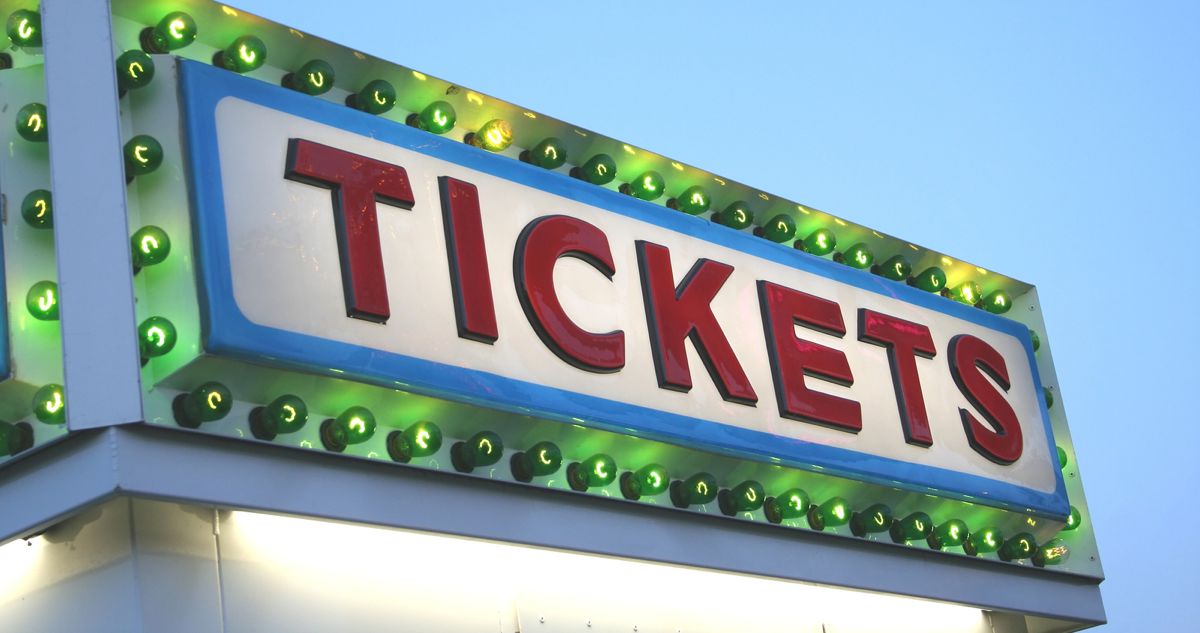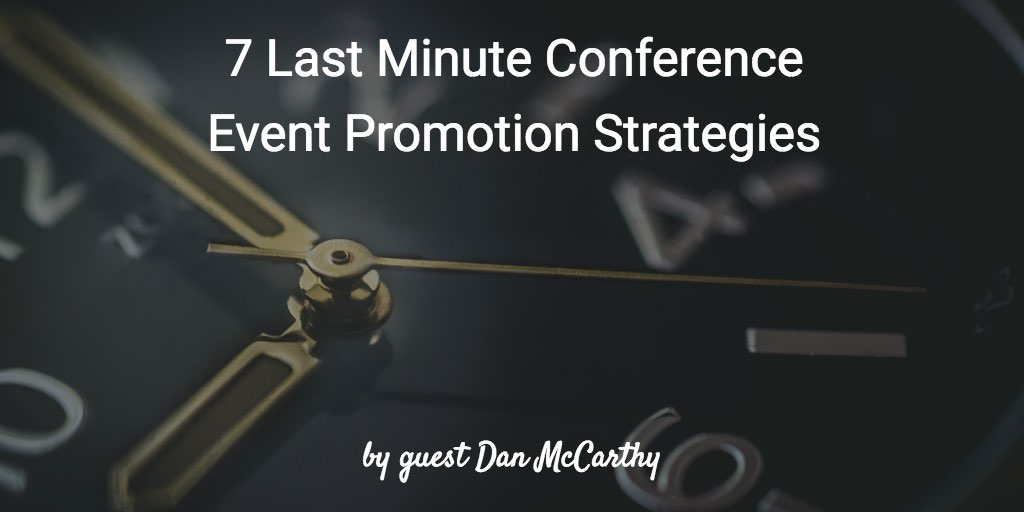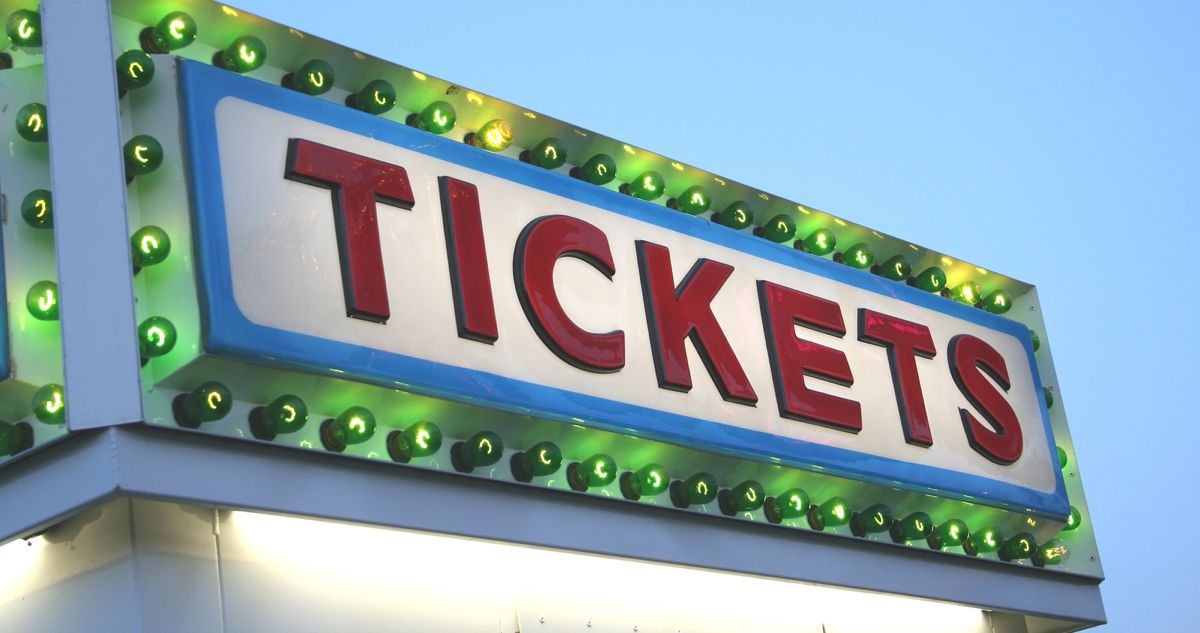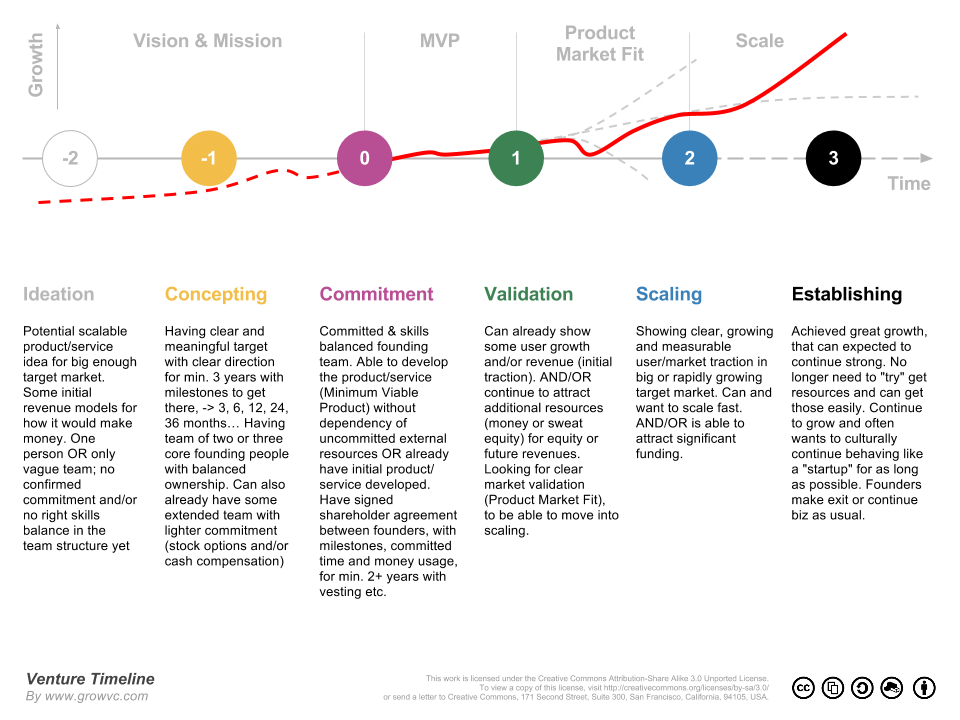Previous page

It is no secret that planning an event, regardless of the type of event or the
size of the event, is incredibly stressful.
Not only are there plenty of things that you can get wrong, but there are also
of things that you are going to need to think about and keep in mind. Making a
mistake can not only make things a lot more stressful and challenging for you,
but it can also have a huge impact on the success of your event too.
So, to help to make sure that your event is as successful as it can be, we
have put together some of our top tips on the most common event management
mistakes and how you can try your best to avoid being trapped in them.
Not being prepared for everything
It is great to think positively about your event, and try to keep in mind that
everything is going to go just the way that you want it to. But of course, it
is never a good idea to ignore the possible risks and issues that can pop over
during the course of planning and running an event. Things can and do go wrong
at any stage of the process, so preparation for this to happen is key. Not
only will it help you to identify areas that could have an issue (especially
those that you might not have already thought of) but it will also help you to
figure out what to do should those things go wrong.
Not estimating the size of the event right
Whilst you never know what is going to happen on the day itself, any event
planner will know that estimating the size of your event is one of the key
parts of the process. You might think it is better to be modest than to be
over the top on the amount of people that are going to attend, but this really
isn’t the case. It is much better to think big when it comes to your
event. Think about the best case scenario when it comes to numbers and that
way you can be prepared for any chances of overcrowding that could occur.
Not being aware of the changes (or making others aware)
Despite your best planning, there is always a good chance that in the run up
to any event, things will change. These changes may seem minor, but if they
are not dealt with, or if no-one else in the planning team is made aware of
them, then this could cause a problem. Any changes, no matter how small they
are, need to be shared with the team.
Not having the right equipment
It is all too easy to forget about important things like equipment when it
comes to planning an event. However, forgetting something as simple as pens
and paper could have a much bigger impact on the event then you realise. Have
a checklist of all the things that you are going to need on the day and make
sure that you have plenty of it all.
A great way to signpost for your event has to be roll-up
banners. Make sure that you get
your roller banners right and you won’t have to
worry about your event again!

The celebrity speaker can often be the highlight of an event, therefore, when
choosing your speaker, you want to make sure that they are going to make an
impression and have people talking for ages after the event.
A good keynote speaker will, lighten the mood, have excellent public speaking
skills, be engaging and entertaining and have the audience laughing. So, who
better to have at your event than an acclaimed comedian?
If you want to add a little funny to your event there are a range of comedians
that are known for their sketches on Saturday Night Live or their famous
standup routines that are ready to inject some humor into your event. Here are
just five celebrity comedians that you should consider:
James Acaster
James Acaster’s popularity has soared in recent years. Since 2008, when James
first started performing standup comedy, he has made multiple appearances at
the Edinburgh Fringe Festival and has featured on BBC’s Mock The Week and
other TV Comedy shows countless times. His most recent show won him the most
outstanding show award at the Melbourne International Comedy Festival Award
2019.
As well as being one of the finest UK standup comedians he’s also hugely
popular at events with his whimsical wit winning over all audience types.
Chris Addison
If you’re looking for a comedian with a huge amount of experience, then you
should consider Chris Addison. He has appeared as a panelist on shows such as
Would I Lie To You, Mock The Week and Have I Got News For You numerous
times. He has performed his solo shows at theaters all over the country and
has been a headliner at some of the most prestigious comedy clubs.
He’s a comedian adored by many and his confidence, intelligence and comedy
mean he’s the perfect entertainment for any sort of event. If you want to bag
Chris for your event though, you’ll have to be quick as he’s a man in demand.
Alexander Armstrong
If you want a familiar face to host your event then comedian, actor and
television presenter Alexander Armstrong would be an ideal choice. He’s often
a guest host on BBC’s Have I Got News For You, he presents the popular BBC
game show Pointless and has appeared in a number of films.
His recognizable face puts everyone at ease and his versatile, amusing and
relaxed character makes him the perfect event presenter.
Jo Brand
She may have started off in psychiatric nursing but she’s now one of the best
female comics in Britain as well as an established author with lots of awards
under her belt. She’s made appearances on many prime time comedy shows and
even hosted The Great British Bake Off: An Extra Slice, all contributing to
her popularity.
Her unique style makes her highly sought after and she’s been dubbed an
outstanding corporate speaker and fantastic event host.
Jimmy Carr
Take your event to the next level and invite one of the biggest selling live
acts in UK comedy, Jimmy Carr. He’s the host of a range of television shows
including 8 Out Of 10 Cats and Big Fat Quiz Of The Year and his solo standup
shows are constantly sold out.
He’s an extremely versatile presenter and can adapt easily whether it’s
hosting, presenting or giving awards. His charismatic and ultra-cool character
will be sure to win over the crowd. He’s a busy guy so if you want to invite
him to speak at your special event make sure you book far in advance.
So, why not spice your event up with a comedian celebrity
speaker to inspire, motivate and entertain your
audience?

Both large and small events and event venues that involve gatherings of people
are increasingly vulnerable, which means that event planners and organisers
need to take great care in terms of issues relating to safety and
security. Thankfully it is becoming easier for organisers thanks to the use of
new forms of technology.
No matter whether you are organising a summer fete, a sporting event, a
concert, or a market, any event that involves multiple members of the public
needs to be planned adequately. Here we take a look at how technology is
changing the way that we look at event security and safety.
Conducting risk assessments
Whenever you consider any aspect of event security you should first consider a
risk assessment. Carrying out a risk assessment should be the first priority
in the safety and security of your event, and any decisions should be made by
consulting the assessment.
It is much easier to carry out an assessment (and easier to access the
results) if it is created and stored digitally. Evaluating threats and
weaknesses can be most easily done when utilising a wide range of
technologies. It may even be necessary to work with external specialists in
risk assessment to ensure that you are carrying out the work properly.
Brief your attendees with an app
If you are looking to prioritise safety and security at your event then the
most important thing that you need to is to distribute information. If you
create an app for your event and then encourage attendees to use it, you can
provide them with information about how to keep safe while attending your
event. This could include details such as acceptable items to take into the
event, as well as maps and other details.
Security checkpoints
Bag and body searches have become common practice at events to ensure that
no-one is bringing in any forbidden substances or anything else banned by the
organisers. This undoubtedly has contributed to events becoming safer. But one
of the challenges that this brings is the amount of time that it takes to
search each person and bag individually.
Thankfully this is one area that the events sector can learn and benefit from
the advances in the air travel
industry.
Airport security has been consistently ramped up in recent years, and this has
led to the development of many fast security scanning technologies. There are
now devices such as walkthrough scanners and handheld metal detectors that can
be used by event staff to speed up the process.
Provide emergency plans and procedures to staff
It is vital for event organisers to come up with detailed security and safety
plans, and contingencies in the event of an emergency. Of course, it is also
necessary to provide staff with training on what to do if any kind of
emergency situation was to occur. However, technology has made this easier as
it is now possible for all members of staff to have immediate access to the
plans via any device.
This can either be achieved by using an event management
app that all staff will
be logged into, or simply by distributing plans to individuals.
Have traffic management plans distributed
At larger events it is often necessary to plan for traffic management. If your
event requires access for vehicles, these vehicles can pose a danger to any
pedestrians at the site. This means that you need to have a plan in place.
When you have created a traffic management plan you should ensure that it is
available in the form of digital document so that it can be shared across
devices with any parties that need it.
“We have provided concrete barriers for traffic management at many events,”
said Jim Treacy, General Manager at civil engineering contractors
Maltaward “and the operation always
runs most effectively when the event organisers can provide us with detailed
plans for the placement of barriers.”
Monitoring cameras
To provide the best possible security for your attendees and staff it can be
very valuable to have CCTV cameras in place. Better still, these cameras can
be monitoring from applications on smart devices – this can be easily managed
now that these devices and applications are so easily accessible on smart
phones and
tablets.

Managing an event successfully can be an extremely stressful task, even when
you’re at the top of your game and things are going swimmingly. The difficulty
can lie in the uniqueness of each event—they’re all so different and require
fresh thinking every time. A great deal of flexibility is needed to be
successful in this field. You also need a reliable set of contacts and places
to source from, like
Expocart, if
you’re after quality banners for your stand. Let’s take a look at 10 tips you
will not want to miss when organizing a terrific event.
1. Begin Planning Early
It’s never too early to start. If you can confirm the event date and venue
early, the better it will be. Even calling a year in advance is a good idea if
it seals the venue. You may not have exact details on participants at this
stage, though there should be some flexibility. There is a chance you may save
some money too, by booking early. Getting your stands to look the part is key;
here are another two
sites which are
reliable and will help immensely.
2. Make Lists for Everything
Keep a record of absolutely everything that needs to be done and organized for
the event. Create checklists with actionable items, and dates on when items
need to be finalised. This also makes things clear when delegating work within
your team. Any overdue items should be flagged up as early as possible.
3. Find a Trustworthy Venue
The venue you find could have a huge impact on how smooth or stressful the
whole process is. Even though you may be always on the lookout for a unique
venue that will give participants something to remember; you also want one
that will be dependable and not give you the hassle. If a place already comes
with lighting and seating, won’t that make your job a lot easier?
4. Be Clear on Your Objectives
Be sure to work with your event planner or client on the concrete goals for
the upcoming event. The objectives should be specific and try to work with
numbers where possible. Such as how many awards are being presented, or the
number of questions you can fit in at the end of a session.
5. All Contracts Should Be Clear and Detailed
To avoid any misunderstanding or unexpected alterations, make certain that the
initial contracts contain as much information as possible; whether the
contracts are drawn up by you or partners. The small print should always be
read, no matter how time-consuming.
6. Attract People With a “Green” Event
Organizing an eco-friendly event will be a massive selling point. It’s our
collective responsibility to do good for the environment. If you can organize
an event with green event programs and other sustainable alternatives, it’s
a real win-win for your event and the world. Make sure you promote your idea
of a green event.
The great thing about social media is the participants can help promote your
event by spreading the word. It doesn’t mean you can just sit back and let it
happen, however; you need to be proactive with this approach. Each social
media platform can be used strategically to post clever pictures, videos and
messages. Hopefully, the public will get sharing—a massive help with your
marketing.
8. Do a Practice Run
Every event you organize should be put through its paces prior to the real
thing. No matter the size of the event; a practice run is always a good
idea. It should include as many of the people who will be involved in the real
thing as possible. This gives you a great chance to see if anything is not up
to scratch, so you can put it right.
9. Ask Those Who Attended
By talking to people, seeing their reactions and using feedback surveys, you
get a good picture of what it’s like being in their shoes. What did they like
about it? Was there anything commonly disliked? A lot can be learnt from this.
10. Make Changes That Count
After all the feedback from the last event, there should always be lessons
learnt. No event is perfect, and your job is to constantly make changes for
the better. You should make it a point to change something in a positive way
after each occasion. Examples can be to axe any overly expensive vendors or
juggle your teams around to rectify inefficiencies.
Keep Learning, Improving, and Enjoying
As you can see, there is a lot that goes into organizing a successful
event. Although it can be hugely demanding; you will feel an immense sense of
pride and satisfaction when the last guests have left and you’ve reflected on
your achievements. Whether you’re still new to managing events or have many
under your belt already, there are always ways to keep improving and take your
reputation as an events organizer to new heights. By following the advice
given above and some hard work, you will get there soon enough. Stay
organized, plan well and learn from every occasion.

So you got an impending conference to plan; where do you start? Social media
is a good place to begin to start selling some tickets. Your social network
channels, in fact, are a more valuable resource than you realize. If used
right, you just might be able to fill every seat. That means more awareness
and consumer conversion for your brand.
1. Facebook Ads
Sure, Facebook ads cost money, but as the saying goes, you have to spend money
to make money. Facebook Ads is one of the best places to start. For best
results, really take advantage of the “interest” setting, which is a great way
to confine your ads to your demographic.
Your ads can be further confined based on factors like work, language, gender,
and so on. The narrower you can tighten your demographic the better. It also
means you are more likely to get more clicks that result in a conversion. This
is very important since you are being charged by the click or by the
impression depending on the option you choose.
2. Create a Memorable Hashtag
Why use hashtags at all? First of all, they ensure your tweets and other social media posts become a trend. Those unfamiliar with the hashtag can also click on it to see all other posts containing the same hashtag, thus learn about your event.
Your hashtag needs to meet two requirements: it has to be clear and short. A bit of compromise might be required to strike a fine balance between clarity and brevity.
Take the hashtag #MalibuRealEstateConference2016. Is it clear? You bet. Just
by looking at it, you know immediately that it’s a conference about real
estate in Malibu. However, the hashtag is also awfully long. How might you
shorten it?
How about #MREConf? It’s just the right length, but it’s not clear, is it?
Most people won’t be able to determine what it is just by looking at it. So
how about #MalibuRealEstateConf? It’s just right. Find the middle ground between
length and being concise.
3. Start a Contest
Start some form of social media contest with plenty of giveaways. Contests are
effective because they promote engagement through a fun activity. There are
various social media contests you can hold, though it’s recommended that you
keep it simple. Here are a few ideas:
- Supply an existing pic related to your event and have participants come up
with a funny and promotional caption.
- Have participants submit their own selfies, which they will then edit using
a number of company and event-related images.
- Word jumbles using phrases pertaining to your event
- A short response contest. If your company is a hotel, for example, then
participants can, in 100 words or less, explain why they would choose your
lodging over the competitors.
Be sure that everyone who participates gets a prize, such as a higher value
swag item available for pickup at the event. Winners and top performers,
though, should be awarded with a free ticket or two.
No, it’s not out of the way to
request your sponsors
to get involved in the marketing. Sponsors, after all, benefit just as much as
you do from a successful event. Sponsors also likely have a larger social
media following than you do. Make it a joint effort.
Consider collaboration work, such as guest posting for each other’s blogs and
extending the same offers to one another’s social network followers. Consider,
for instance, extending the same early bird sales offers,
buy-2-get-1-free deals, or whatever special offer you have for your own
followers.
5. Implement Referral-Based Rewards
Why do all the ticket selling yourself when you have an army of followers that
can help you along the way? It doesn’t have to be a one-man job. Your
followers will be happy to help along if there’s something in it for
them. This is why you should have an affiliate program with a reward system in
place. Utilize a tier-based system to encourage participants to reach higher
milestones.
An example of a tier-based rewards program may include:
- 5 referrals – free 6-month magazine subscription
- 10 referrals – free 1-year magazine subscription
- 20 referrals – free VIP ticket for you and three members of your party
6. Use the Scarcity Tactic
Emphasize that tickets are limited and can be sold out any minute. Also point
out that it’s a first-come-first-serve basis, so attendees should immediately
purchase their tickets right away to guarantee their spot.
To really make your point, add a widget on your main social media event page
that shows the number of remaining tickets, which changes in real time
whenever a ticket is sold. You can also routinely send out tweets letting
followers know the number of tickets sold and how many remains.
This will convey a sense of urgency especially for procrastinators. You should
also encourage sponsors and affiliates to push the same scarcity narrative in
their posts.
Social media provides a wealth of tools for selling your tickets. You just have to take advantage of these diverse resources rather than just treat social networks as a place for reading and exchanging short posts.
The conference is basically the bread and butter of the whole event. The
conference is what most of the attendees came for. If the presentation or
lecture bombs, then you can expect negative feedback and potentially a
decreased turnout the next time you have an event.
For a
successful conference,
you have to make it interactive rather than just
having the speaker
talk the whole time. Here’s 5 ways to ensure the audience becomes active
participants rather than passive listeners.
1. Don’t Leave Out the Q&A
Lectures hardly end as scheduled. It’s common for speakers to go a few minutes
over, resulting in the Q&A session being curtailed or canceled
altogether. It’s very important that the speaker takes questions from the
audience. This gives attendees the sense that the presenter is accessible and
not just some speaker that’s just doing what he’s paid to do.
Set aside at least 15 minutes to take questions from the audience. If the
conference is being streamed, and it should be, then you should also answer
questions from a remote audience submitting enquiries via social media.
Also keep in mind that Q&As don’t necessarily have to be held off until the
end. In fact, it’s recommended that you divide the Q&A into two sessions. If
the lecture is particularly long, like an hour or more, then have a 10-minute
Q&A at the 30-minute mark and another at the end.
2. Make It an Edutainment Session

Photo: McMaster
Who says learning moments can’t also be fun? Even if you have a charismatic
speaker, if the conference drags on for hours, then even the most attentive
listeners are going to zone out. A good way to keep the audience engaged is
through a comedic speaker that can provide educational material while also
eliciting laughter.
It can be tricky to
find a speaker
that is knowledgeable in your field that also has a propensity for making
people laugh, but it’s worth the effort to find such a person. When an
audience is engaged,
they’ll be more inclined to ask questions, volunteer for demonstrations, etc.
Here’s a video of business
speaker and edutainer Mark Sanborn during one of his leadership conferences.
3. Hire a Professional Moderator
There should be a moderator to keep the speaker on track. The moderator’s role
is more important than most people realize. The person assigned this role has
big responsibilities that include but not limited to:
- Introducing the speaker
- Making sure the speaker stays on schedule
- Informs the speaker to move onto the next topic
- Facilitates the Q&A
- Collects questions asked via social media
- Announces intermissions
A good moderator also interjects when audience members are speaking over one
another, or calls for a brief break if the audience appears listless. The
person needs to be cognizant of attendee reaction and act accordingly.
The role of moderator is tougher than it looks, which is why you should
consider hiring a professional rather than designating the job to a staffer.
4. Incorporate Technology
Technology is always a good way to encourage participation in more ways than
one. One way is to incorporate an event app where the audience can take a
poll, in which the results will show up on a slide as it’s presented in real
time.
Another method is to
add a social media wall. Encourage
the audience to tweet their questions, which will appear on the wall. There
will likely be some questions that come up more than once. These are the
questions that can be taken and answered in detail.
If the conference is being streamed, then you can ask those watching remotely
to submit their questions in the form of a video. This adds a bit more depth
to the Q&A as you can associate a face with the question.
5. Campfire Sessions
Campfire sessions are ideal for smaller groups and is recommended if there’s
less than 20 people. These are more informal with the speaker taking more of a
facilitating role rather than that of a lecturer. These can also be set in a
more laid-back environment like a lounge or outside the venue. With these
type of sessions, the speaker kick starts the topic to get the ball
rolling. Others will then freely jump in to add their own input. Even if you
have a large audience, you can opt to hold multiple campfire sessions divided
into smaller groups.
Alternatively, if multiple presenters are available, and there’s enough venue
space, then you can eschew the conference altogether and instead hold the
campfire sessions in a workshop setting. If the session is being
live-streamed,
then you can even have several members
join the discussion
through a tool like Google Hangouts. Just be sure that the total number of
attendees – both live and remote – doesn’t become too large.
Make It a Two-Way Interaction
There will be a sense of separation between speaker and audience if all the
former does is speak nonstop. There has to be an outlet for the attendees to
become active participants in some shape or form.

Obviously, you want to get a head start on the marketing for your upcoming
conference. Even so, you can change things up last minute if ticket sales are
faring poorly.
Even with only a week or two left before the event, you can still put together
a sound strategy that elevates your brand.
1. Create a Special Offer
If tickets are still aplenty as the conference date nears, you can try putting
into place a special offer of some kind. There are your typical
buy-2-get-1-free or buy-1-get-one-half-off type of offers. Of course,
you’ll lose some revenue since some tickets are being sold at a fraction of
the price or given for free.
However, it should increase overall sales. It also ensures more seats are
filled at the event, which also equals more attendees to cater your latest
offerings to.
These deals should also be extended to those who already purchased their
ticket. If you’re offering a buy-2-get-one-free special, for instance, then
those who already bought two tickets weeks prior will receive a free
ticket. Those who already purchased their ticket shouldn’t feel like they are
being penalized for being an early bird buyer.
2. Create a Contest
Host some type of contest with a ticket as the winning prize. Common social
network contests include a picture that you submit that participants then have
to edit in some way, such as by adding a caption or photo shopping it to make
it funny.
Another idea is to hold a “fastest answer” contest via Twitter. This is
especially a good idea if you’re hosting some form of live webinar, which by
the way, is another great last minute promotion idea in itself. After the
webinar, begin asking questions to test whether listeners have been
listening. Have participants tweet the answer; the person to answer the most
questions first and correctly is the winner.
If you want to keep it simple yet effective, then just make the contest a
sweepstakes. Have participants do something for you, such as like your
conference event page or use the event hashtag a certain number of times to be
entered into a random drawing for a free ticket.
3. Give the Ticket More Value
Make the ticket really worth its weight. Instead
of just being good for entry to your conference, you can also give it value in
some other shape or form. You can, for instance, include a serial number on
the stub, which is good for an online discount purchase after the event.
Similarly, the ticket can also be good for a teleseminar held before or after
the event, which ticket buyers can access by entering their
ticket’s registration
number. Add some type of complementary material or benefit both before and
after the event to give attendees the most bang for their buck.
This one is so obvious that it shouldn’t even have to be mentioned. However,
social media
is so underutilized. Too many people only use social media for sending posts,
and they only stick to the primary ones like
Facebook
and Twitter.
You have to be more diverse than that. Expand your
social network presence
by also including lesser utilized sites like Tumblr, Pinterest, and Google
Plus. There are also a number of niche-specific social networks as well, not
to mention numerous blogs where you might be able to submit a post as a guest
contributor.
You should also get your own followers to help you along the way. Encourage
them to use the event hashtag as much as possible and to get the word out.
5. Employ the Scarcity Tactic
When hosting an event on Facebook, invitees can click an icon to mark their
status, namely whether they’re attending, not attending, or “maybe.” The
people in the “maybe” category is a segment you really want to target when
selling last minute tickets. These
people are still on the fences. The scarcity tactic may help them make up
their mind.
Include in your event page that tickets are scarce and that only a few
remain. Once they’re gone, they’re gone. You can even embed a counter showing
the number of ticket remaining, with that number ticking down whenever a
ticket is sold.
When people realize that there is a possibility of missing out by
procrastinating, then they would be more likely to immediately purchase a
ticket even if still debating to themselves about attending.
Some event planners are hesitant about asking sponsors for promotional
help. They have this idea that doing so would somehow rub the
sponsors
the wrong way.
Remember, though, that sponsors want the event to be successful just as much
as you do because it means more exposure for them.
Sponsors also likely have a larger client base than you do, so they can reach
out to a larger audience than you can. Whatever specials you have for your
followers, be sure to extend it to your sponsor’s followers. This includes
invites for social media contests, webinars, and so on.
7. Get Active on Discussion Forums
Are forums considered social media? That’s up for debate, and it really
doesn’t matter. What’s important is that they are an excellent hub for
reaching out to an untapped audience. While it’s true that discussion forums
are kind of dying out, there are still plenty of people who participate in
them on a daily basis. Just do a Google search to find forums within your
niche.
Becoming a member, though, doesn’t give you a license to start promoting your
conference right off the bat. If the forum is being moderated, there is a good
chance you will be immediately barred. Contribute first by starting your own
threads or replying to existing ones where you have an answer or can lend
valuable input. Once you become a familiar member, then you may mention your
upcoming conference in passing.
It’s Never Too Late
There’s always time to
promote your conference
even if you only have weeks or days as opposed to months. You might have to
modify your methods a bit, but doing so will mean selling a few extra tickets
that otherwise would have gone unused.

Louisville, CO/Arlington, VA/London, UK - (September 9, 2015) - Ryan McGeary, Founder of BusyConf and Michael Barnett, CEO of InGo announced today that they have signed an agreement making BusyConf an official InGo Growth Partner. BusyConf, the simple conference management software platform, will now offer InGo’s social media advocate marketing software suite as a fully integrated option on their conference management system.
INGO’S SOCIAL MEDIA MARKETING SOLUTION TO BE OFFERED ON THE BUSYCONF CONFERENCE MANAGEMENT SYSTEM
This partnership will mean that BusyConf customers will be able to seamlessly install the InGo widgets for their events with a simple cut and paste ID entry; no code installation required.
“Integrating InGo into our platform will allow our clients to tap into the power of social media to grow their events through the most effective kind of marketing: word-of-mouth buzz created by Advocates,” said McGeary. “We are so pleased to add this ground-breaking tool to the BusyConf tool box for event planners.”
“BusyConf is our first advanced integration Growth Partner,” said Barnett. “InGo is so pleased to be entering a partnership that is driving innovation forward in the events industry.”
You can now experience the power of InGo on BusyConf with a demo integration event. Check it out here.
About BusyConf - BusyConf is the only application with its unique set of conference workflows that makes conference planning easy. We aim to empower both organizers and attendees to make the most out of the limited time they have. We do this by making it easy for organizers to collect the information they need from speakers and easier for attendees to access this information. From finding speakers by issuing a call for proposals to selling tickets and creating a schedule that works for all attendees, BusyConf helps organizers make their conferences better; better for themselves and better for attendees.
About InGo – InGo is a social media advocate marketing company that empowers event organizers and attendees. InGo serves the largest event companies in the world such as Reed Exhibitions, Emerald Expositions, Messe Frankfurt, Fiera Milano and UBM. InGo provides event marketing solutions for varied industries such as tech, fashion, construction, media, film and more across the globe. It has been in business since 2013 and has served over 200 events of all sizes in the U.S., Europe, Canada, Mexico, Australia, Columbia, Nigeria, Turkey, Japan, China and Russia. Discover how InGo can grow your event at http://regdemo.ingo.me.
Contact
Ryan McGeary
sales@busyconf.com
https://busyconf.com
Source
BusyConf
###

Knowing how to price event tickets is one of the hardest, and most important, parts of planning an event. Aim too high and you can end up with an empty venue. Too low, and your event might not be able to cover costs. Pricing strategy is very complicated, but at its most basic, good pricing is affordable, sustainable, and justifiable.
Here are 4 things you need to know about ticket pricing.
Most large events use proceeds from ticket sales to cover costs, and then use sponsorship money to make a profit.
Corporate sponsors are willing to pay a lot of money to get in front of the right audience. If your event sells a sponsorship for 5 thousand dollars, not an unusual price for a sponsorship, and your average ticket costs 50 dollars, you would have to sell 100 tickets to make as much as you would from one sponsorship.
It is considerably easier to sell your event to a handful of sponsors than to hundreds of attendees. Price your event based on costs and the number of tickets available, then rely on sponsorships to make your event profitable.
Learn how to create a sponsorship prospectus that works.
2. Who is paying for the tickets?
Many large conferences and events sell tickets for hundreds, or even thousands, of dollars. While it may seem like people are willing to pay that much to attend events, this is usually not the case.
Event organizers for events such as TechMentor, an annual technology conference, know that their attendees are not the ones paying for their tickets, their employers are. Large companies are willing to pay high prices to send their employees to events because they have a sizable budget allocated to employee education.
If you know that most attendees at your event have their expenses paid by their employers, then you can charge higher prices for tickets. If not, try and keep your ticket prices affordable.
3. Price anchoring
Price anchoring is the psychological tactic of placing higher priced items next to similar, but lower priced, items in order to increase sales of the lower priced item.
For events, price anchoring can come in the form of tiered ticketing, discounting, and time sensitive pricing.
Having tiered ticketing can increase revenue from events by allowing you to sell high priced tickets to those who want them, while still keeping ticket prices affordable for everyone else. Besides a regular ticket, you can have a premium ticket that includes things like a recording of the event, access to workshops, and other benefits.
Discounts for students, academics, members of the military, and other special groups can help your event cover costs while still remaining affordable. Give discount codes to attendees that add value to your event, but might not be able to pay full price for tickets.
A time sensitive pricing strategy can be used to sell more tickets from the start Conference management software like BusyConf allows event organizers to price tickets based on purchase date. Create early bird tickets for people who register before a certain day to encourage early registrations and create late registration tickets for price anchoring to make buying regular tickets more appealing.
4. Social proof
Social proof is a psychological term for when people look at the actions and opinions of others, especially those who hold influence, in order to decide their own actions.
Social proof can be used to justify your event’s ticket prices and show potential attendees that your event is credible. Gather testimonials from past attendees by emailing them or through social media and add it to your website. If your event’s speakers are influential, use their names as social proof by name dropping them on your registration page. Using sponsor logos can also help your event gain credibility.

Startups, small businesses designed to grow extraordinarily fast, are known for making a lot happen with very little resources. Facebook, now a public company worth over 100 billion dollars, began in a college dorm room, while SnapChat, also started by college students, is now worth almost 10 billion dollars.
Many startups follow the Lean Startup philosophy, a business methodology focused on experimentation. By applying lean startup principles to conference planning, organizers can save money, move fast, and make a big impact.
Here are 5 ways to apply lean startup principles to conference planning.
1. Start small
Startups often start as nothing more than websites with some text. These websites are known as pre-launch landing pages and are used to measure interest in the startup and gain early customers before they have a product.
Event planners can do the same by creating pre-launch landing pages for their events even before finding speakers, a venue, or sponsors. Services like LaunchRock allow you to set up a basic pre-launch landing page in very little time with no technical skills.
Once startups have a basic product ready, they often start testing it with a small group of early customers. This is known as beta testing. The beta version of a startup is oftentimes low quality. Betas are used to test new ideas and get feedback from real people.
For conference planners, a beta can be a smaller event like a Meetup or even a small virtual event. The goal of a conference is to bring people together for the purposes of learning and networking. Blog posts, videos, and social networks can be used to accomplish the same goal, so conference planners can use these tools to create a beta version of their conference.
2. Stick to the essentials
Startups are known for being scrappy and efficient. If a company like Facebook can start in a dorm room, then your event probably does not need all the bells and whistles that conferences are known for.
People attend events to learn and network. If you have high quality speakers and an environment that facilitates attendee interaction and learning, everything else is unessential. Things like conference swag, goodie bags for attendees, and cool technology can certainly enhance your attendees’ experience at your event, but unless you have a big budget or are expecting a lot of revenue, stick to the essentials.
3. Talk to your attendees
Customer development is a Lean Startup strategy that helps startups build something that people actually want. By constantly talking to their customers and asking them for feedback, startups can ensure that they are on the right path.
By talking to either your attendees from a previous event or anyone who expressed interest in your event, you too can unlock valuable insights. Talk to attendees about their expectations for your event, what they liked and did not like about previous events they have attended, and more. Try to involve attendees in the conference planning process as much as you can.
4. Be innovative
It is very clear that startups are not afraid to be innovative and do things differently.
Constant innovation is what helped Facebook stand out from other social networks like MySpace and FriendFeed. Facebook’s initial strategy of opening up their social network to students at specific colleges, one at a time, was considered crazy. What kind of social network would intentionally limit the number of users they can acquire?
This strategy proved to be one of Facebook’s smartest moves during their early years. By launching only in specific colleges, their small team was able to focus more and the exclusivity of the social network led to a lot of word-of-mouth.
If you want to organize a conference or plan an event that is better than average, then you too will have to embrace innovation. Most conferences follow a similar format and never deviate from the norm. Trying new things can help your event stand out. Embrace new technologies such as live streaming. Use Twitter to live tweet your conference. Record your entire event and put it online for free, or sell it as an extra source of revenue. There are endless possibilities for conference organizers trying to innovate.
5. Measure everything
Facebook tracks every single interaction you have with their social network. Facebook knows how much time you spent on their website, what days and times you are most active, who you talk to the most, and they can even predict major life events like buying a home.
Facebook uses the data to make better decisions with their product. By understanding how people use Facebook, they can find ways to make the experience better.
As a conference organizer, you too can start collecting data and put it to use to make your event better. Use survey tools like TypeForm to get qualitative feedback on things like your event’s format, its speakers, the venue, and more. Then use this data to improve next year’s event. You can also use your event registration tool to ask attendees for information like job title and location. This information can be used to find relevant speakers and a good venue location.
Previous page
Next page
Page 2 of 9
 by
BusyConf
on
by
BusyConf
on


 by
Paige Smith
on
by
Paige Smith
on








